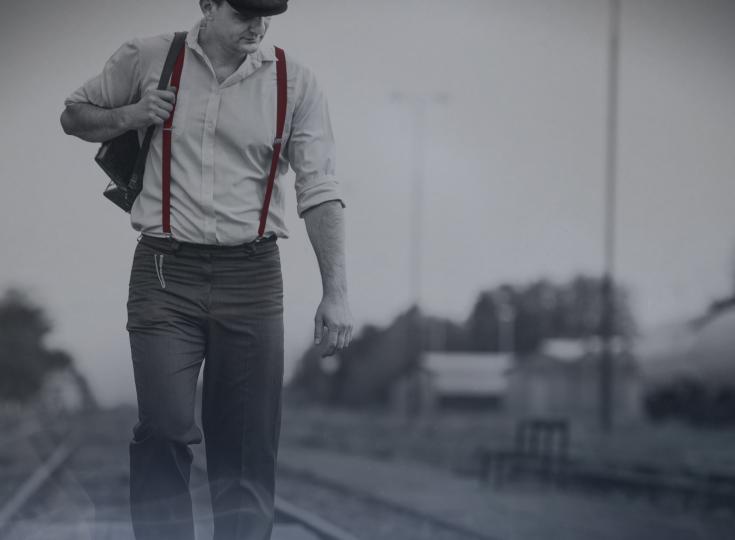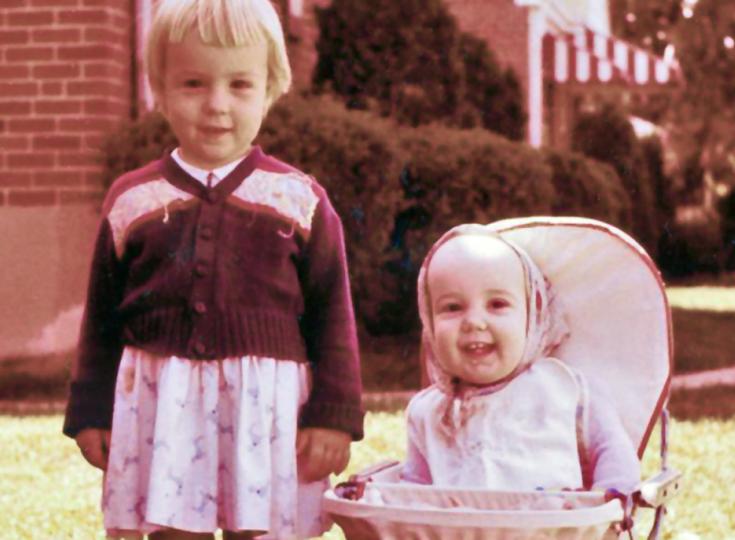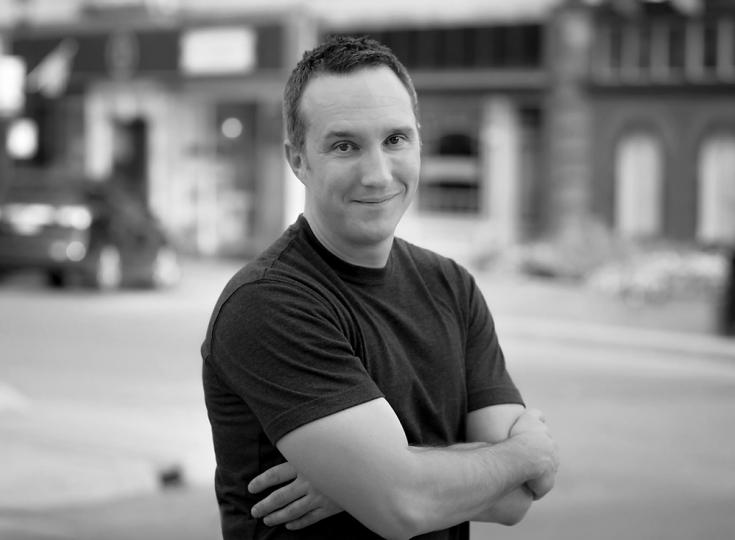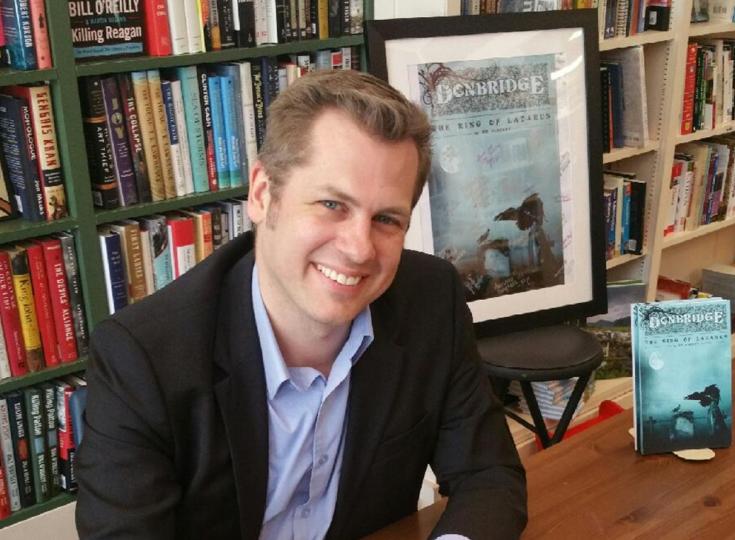Alexa Kingaard - The Unseen Wounds of a Combat Veteran
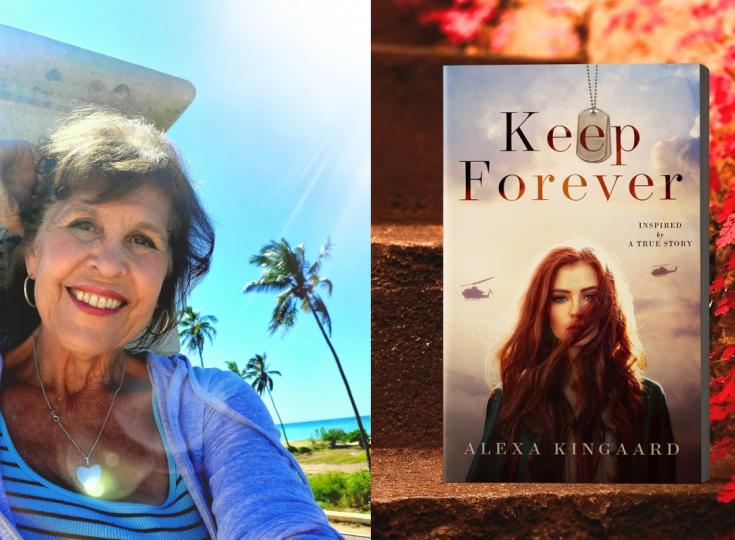
Alexa Kingaard was born in San Diego, CA and has lived most of her life in the area. She currently resides in Carlsbad and is the mother of a son and daughter who continue to be her biggest fans and cheerleaders. She loves writing about nostalgia and the human condition, the common denominator of our lives. As our Author of the Day, she tells us all about her novel, KEEP FOREVER.
Please give us a short introduction to what KEEP FOREVER is about.
A 50-year saga, KEEP FOREVER depicts the life of a Vietnam veteran and the burden he brings home. From his teenage years to his failing health fifty years in the making, Paul O’Brien’s story is a “factional” account of the collateral damage experienced by a veteran’s family and loved ones. He marries Elizabeth Sutton, herself a product of a damaged childhood. Their youthful hardships are what make them perfect for one another, as each possesses a depth of understanding of suffering, pain, and loyalty. Dealing with the unseen wounds of a combat veteran is the crux of this story and what propels it from one decade to the next. As one reader pointed out: “…If you like novels by Nicholas Sparks, you will love KEEP FOREVER by Alexa Kingaard…” High praise…I loved that review!
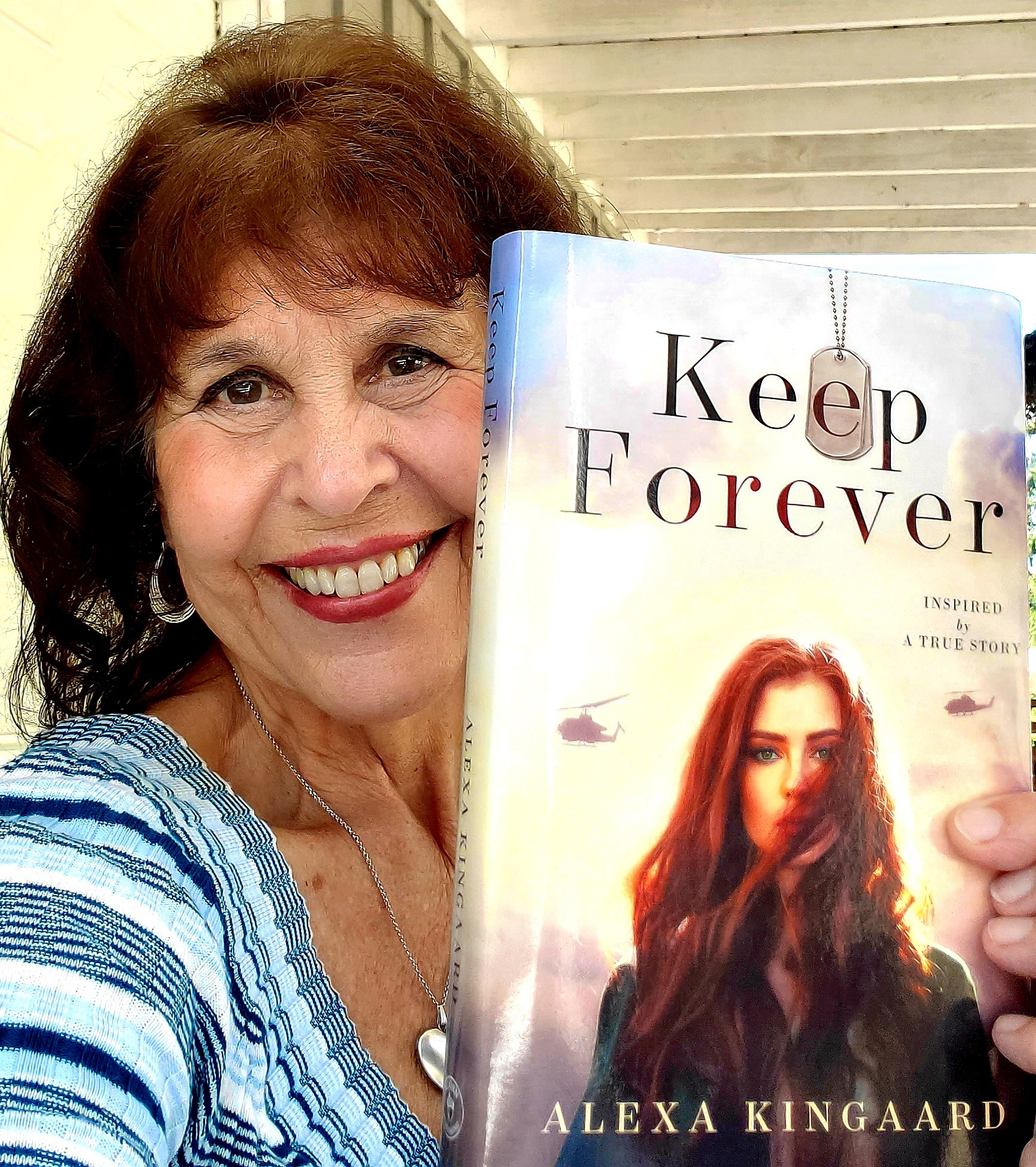
What inspired you to write this book? Was there anything in particular that made you want to tackle this?
I fell in love with a Vietnam veteran in 1969, nine months after he came home. This guy, and many like him, were just kids. Surfing and attending community college one day, picking up a machine gun, and participating in a bloody fight for their lives the next. We married almost a decade later, had two children, and divorced after eleven years. But there was always that link that never faded and a lot of guilt that I carried because I didn’t have the insight to deal with or understand PTSD at the time.
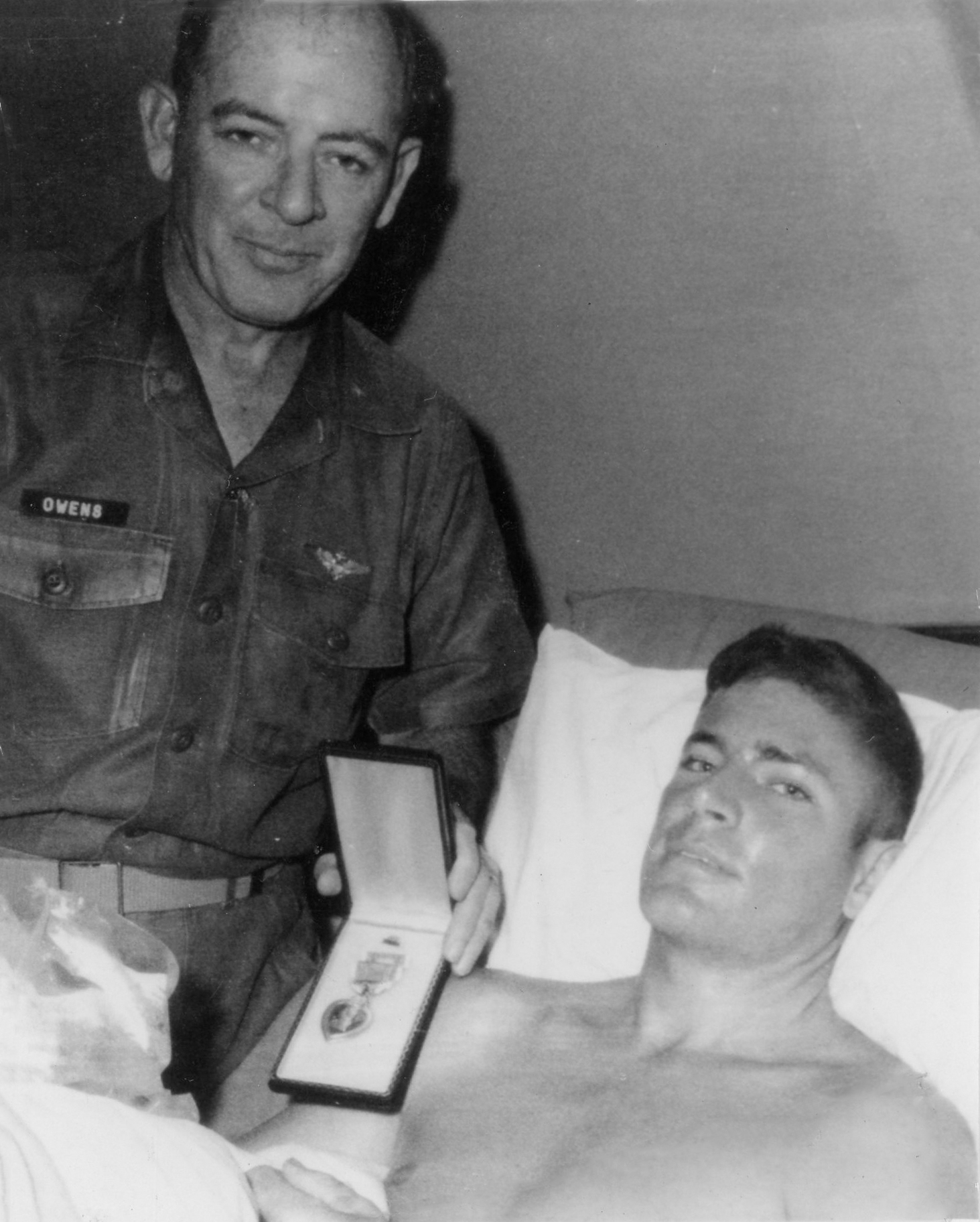
September 27, 2011 – My veteran and I had become close again and spent almost all our free time together. His health was declining, he suffered from depression, but it had become less intense, and on this day he was at the top of his game. We were returning from a coffee date in the Village about a mile away from his home. As I waited at the bottom of the hill to make a left turn a block away from our destination, we were rear-ended by a vehicle twice as heavy as mine, going 45 miles an hour. Physically, we were not hurt. My car sustained $7,000 in damage. The impact of the collision triggered a PTSD episode in my veteran. Seventeen days later, on October 13th, 2011 he committed suicide.
The only way I found to cope with mine and our children’s grief was to write about the oppressive, lifelong burden he brought home and the collateral damage he left in his wake. At sixty-eight years old, I became a writer, but it was not a vanity project. Rather, it was an inspiration to share my story and honor all Vietnam veterans with a love story based on fact. I am not the only wife, and our children are not the only youngsters that live daily with the unseen wounds of a family member who suffers a lifetime with the memories and guilt of their participation in war. The other day, I saw a very potent cartoon on Facebook, posted by a Vietnam veteran…A soldier, rifle slung over his shoulder, head down and staring at the Vietnam Wall. At the top of the page, the caption read, “When was the last time you were in Vietnam?” At the bottom of the page, the caption read “Last night……”
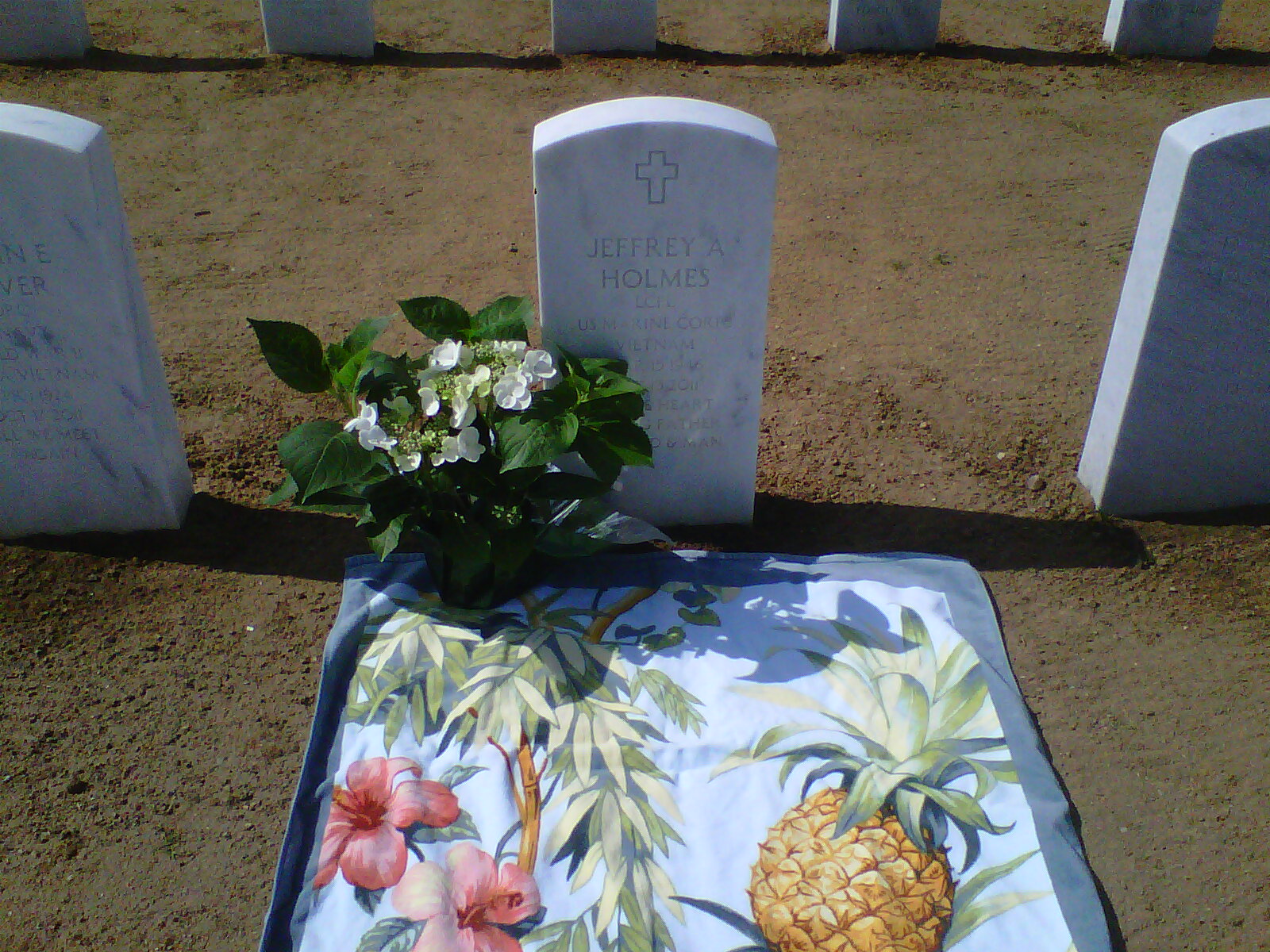
Why did you pick the aftermath of Vietnam as one of the themes?
Anyone who was a teenager in the 60s’ and 70s’ has Vietnam firmly embedded in their history. It’s the story of my generation, and many of my girlfriends married veterans either right out of high school or when the men returned. Women in the military played a part in-country, mostly as nurses and unsung heroines, but overall, it was a war fought by middle and lower class males, those who were not college-bound or who were unable to get a deferment. As with every conflict, combat veterans are plagued with mental and physical burdens upon their return home, but none were vilified like the young men and women who fought in Vietnam. It stained their psyches, and many passed it down to their children – the second generation to suffer the effects of the most unpopular war in our country’s history. Wives were kept in the dark, the VA was not established until the late 80s’, and PTSD didn’t have a name. Aftercare was minimal, and many kept their unseen wounds bottled up for decades. I can honestly say this topic picked me, not the other way around.
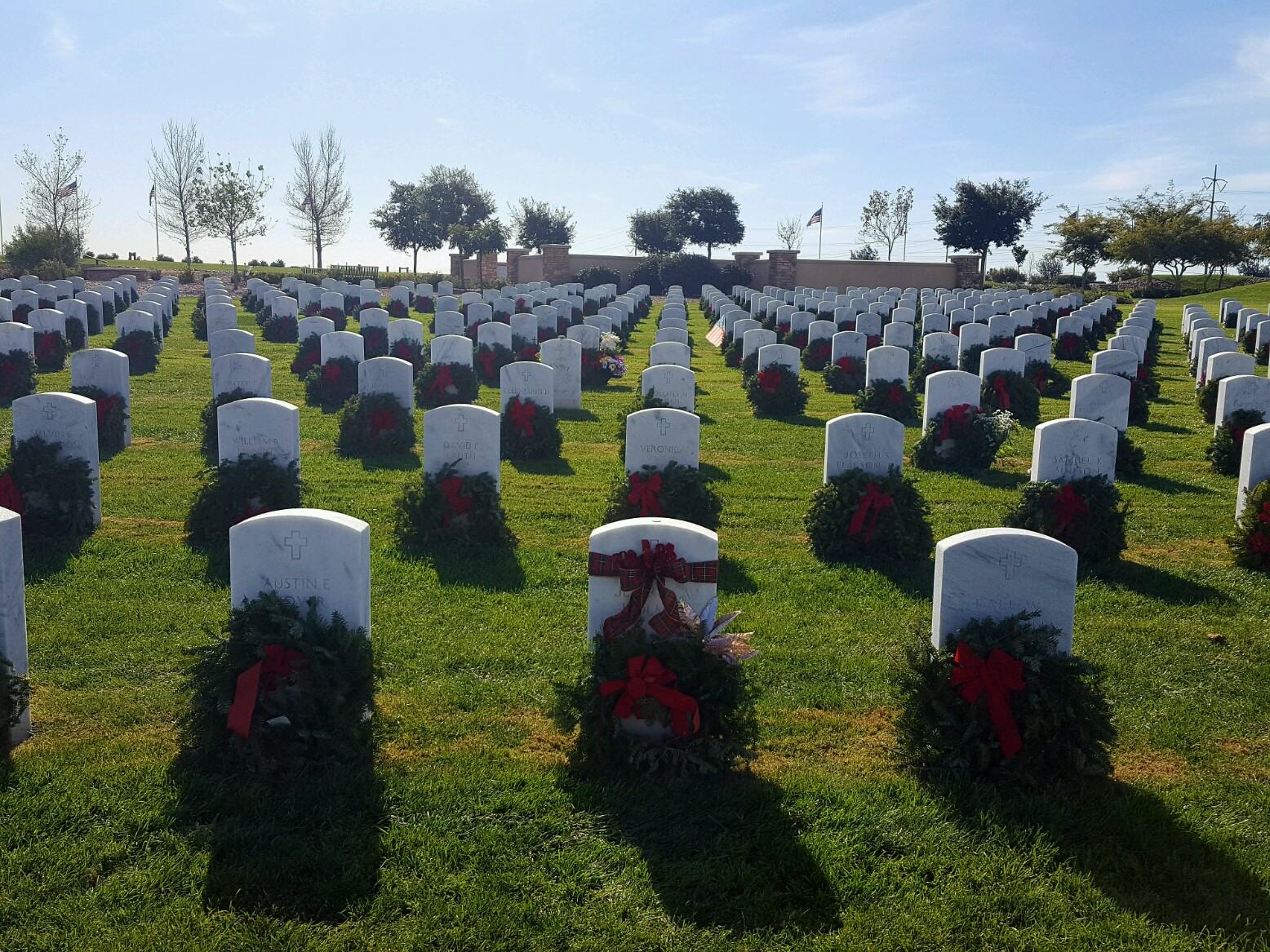
Tell us more about Paul. What makes him tick?
My first-hand experience with PTSD was with my late ex-husband, who battled demons and self-esteem for decades before he took his life at sixty-five years of age. In reality, he and an abundance of other veterans from World War II, Korea, and Vietnam, rarely spoke of their experiences and dealt with their problems and doubts from within. Even though some readers may see Paul as one dimensional, he was far from that, as it was his silent battle that made him so strong. His unwavering love for his wife and children was the power that drove him as he strived to be that strong provider he knew his family needed. His quiet demeanor spoke volumes and it was his sense of humor, love of rock and roll, and kind and giving heart that endeared him to Elizabeth and their children.
When Paul enters the mental hospital after a failed suicide attempt, there is an effort to unravel his sorrow with his psychiatrist and an honest conversation with Elizabeth. But his comfort zone is to keep most of what he is thinking inside, and he slowly reverts to an emotional and mental spot that brings him the least amount of pain. There is no forgetting what he did in Vietnam, only a lifetime of coping with horrors not meant for human eyes. Thankfully, there is now better psychiatric and physical care available for returning veterans of our current conflicts. Their sacrifices are enormous, and they deserve the best available treatment to ensure they are able to live positive, fulfilling lives when they come home.
What makes Elizabeth so special?
Her strength to deal with tragedy begins at an early age, which shapes her character and her ability to adapt to multiple difficult circumstances. While she wishes her path had been smoother, and a fairy tale existence of “happily ever after” was her destiny, she never loses sight of what is important, focusing on what she has, instead of what she does not have.
Besides writing, what other secret skills do you have?
I never quit my day job as a realtor, and still think of writing as my “accidental career.” Had it not been for the profound effect that my Veteran’s death had on me, I probably would never have considered writing, let alone publish two novels in two years. I have always been an entrepreneur, crafty, and artistic. I owned my own wedding cake business for twenty years in the 80s’ and 90s’, as well as a successful event planning business. I can do almost anything, except those skills that require a mechanical aptitude. I’m a pretty sorry “fixer” when anything breaks.
This is your debut novel. What has the experience been like so far?
KEEP FOREVER rattled around in my head for five years before I ever put pen to paper. It was a cathartic exercise and I never intended to publish it. My goal was to have something in writing for my children who had suffered so much alongside me after their father died, and it was a tribute to all of us, especially our veteran. Once it was complete, my son encouraged me to move forward and I was thrust into the world of marketing, websites, publishing, editing and promoting. I was ill-prepared for all of it, but I embraced the steep learning curve in order to have a written document of my story for us and thousands of other military families. Publishing a book, fictional or otherwise, is also a very expensive undertaking, which has limited my marketing ability. At my age, I never entertained the idea of procuring an agent or publisher. It could take years to be noticed and I felt I did not have the luxury of time. I have learned a lot and come to appreciate that this business is not for the faint of heart. There is a lot of rejection, but I learned early on not to let it get me down. With eight million titles to choose from, I never expected to be a household name. What I strived for was to tell a story…and to tell it beautifully. I hope I have succeeded.
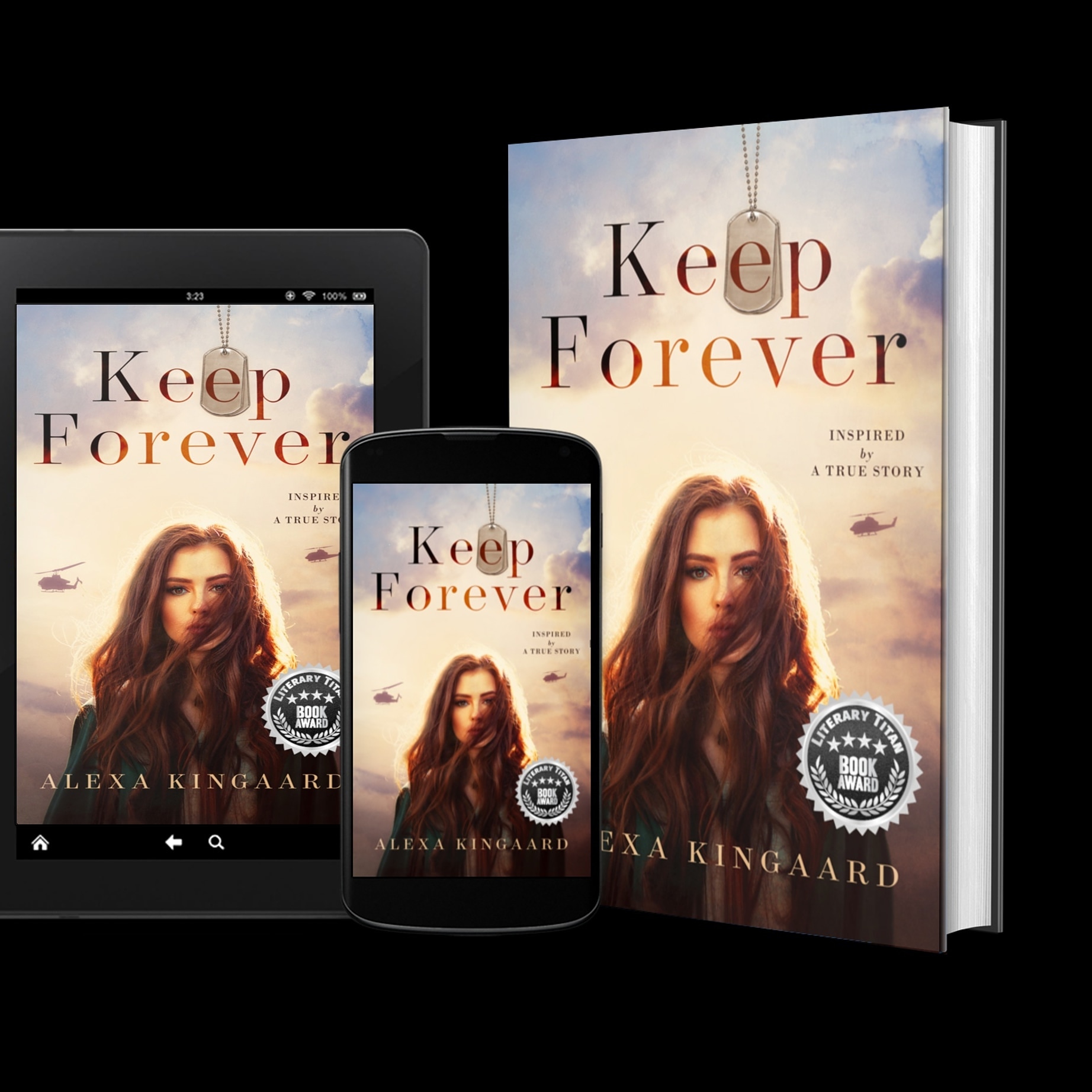
How much research did this book require from you?
Except for weaving the decades-long story around particular dates during the Vietnam conflict, very little research was required. Because I lived the best and worst of that era, I was able to capture the historical trends, popular pastimes, and realistic life experiences accurately from my memory.
Which character was the most challenging to create?
I did create the character and personality of Paul in the image of my Veteran, but Elizabeth, I have to admit, was created from the perspective of what I learned and dealt with after my veteran took his life. She was a better version of me as well as a reflection of most wives who live with and love Vietnam veterans. Hindsight is wonderful, but it was also my mea culpa to create a military wife that was devoted and understanding, even though she was constantly frustrated, sad, and unprepared for the trajectory of their lives together.
What is your favorite line from the book?
When Paul and Elizabeth’s daughter, Lily, grows into her teenage years, their living situation has grown tense and unpredictable. Lily is devoted to her father but blames her mother for creating a weak, passive man, unable to do anything for himself. Her self-absorption doesn’t allow her to see how hard her mother works, and the toll on her father is mostly prescription drug-induced medication, the preferred way of combatting PTSD and mental health issues at the time. After one particularly volatile argument, Elizabeth turns to leave and give her daughter the space she demands. This scene is pivotal, as it sums up Paul’s personality and devotion by his lifelong desire to remain quiet about his part in the Vietnam conflict.
Her tone was soft and empathetic, but she struggled to maintain her composure. “Oh, my girl. You think being loud means you’re strong and being quiet makes you weak? Your father is the strongest man I know – that you will ever know – and his silence is his strength.”
KEEP FOREVER is based on a true story. Please tell us more about this.
“Going off the rails” is a mild description of what my children and I experienced for years after their father’s suicide. We all dealt with it in our own ways, and this little trio was splintered and fractured for the first few years. It has now been nine years since his passing, and even though this type of death shocks your entire body from the inside out, we have managed to close most of the wound that was opened and festered by this single act.
Do you have any interesting writing habits? What is an average writing day like for you?
I am not a disciplined writer, and I compose mostly in my head before I piece a story together on paper. An entire novel - beginning, middle, and end - forms in my thoughts, and then I can quickly complete the first draft in longhand or on the computer. From there I add flesh and bones to the characters and scenes, review another four or five times, and send it off to a professional editor. My novels are not long, generally 65,000-75,000 words. I have at least six more novels percolating in my head, all dealing with nostalgic, family-oriented storylines. The antagonist is often guilt, sorrow, or immaturity as opposed to an actual character, and I use the human condition as the common denominator for all my stories. I am not concerned if three months pass without productivity, as there will eventually be a burst of creativity where I can make up for my lack of efficiency in a very short period of time.
What are you working on right now?
This is the 2nd edition of KEEP FOREVER, and a deeper version than my first that was self-published in February, 2018. In between then and the re-release in March, 2020, I wrote and published MY NAME IS ROSE, a story about a young girl raised in a commune during the 1970s’. It has become an Amazon #1 Best Seller, as well as a first-place winner in an International Book Competition in 2019. KEEP FOREVER also topped the Amazon Charts soon after the second release, with #1 spots in New Releases, Vietnam War History, 1960s’ History of the US, and 1960s’ American History.
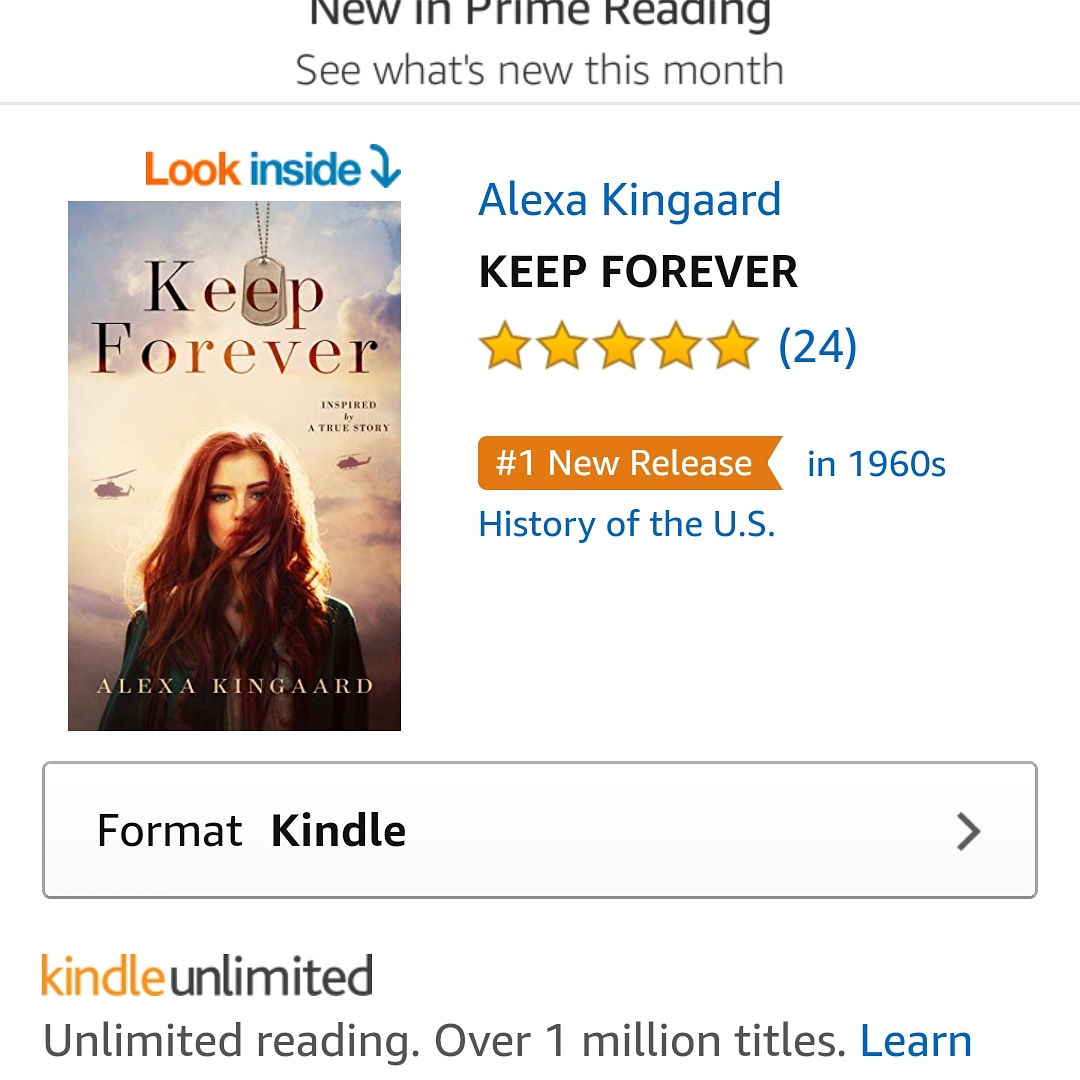
During my first nine weeks of quarantine, I completed the first draft of my third novel, MIRACLE. The story revolves around two young women in the 1950s’. One lives in Southern California and must come to terms with the fact that four unsuccessful pregnancies leave adoption as the only option for herself and her husband. The inability to qualify with the adoption agency due to their advancing age – almost thirty was old in the 50s’ – steers them towards an alternative solution of adopting a child outside the United States. It is a true story that during this time, the Canadian government created maternity homes for young women who were without a spouse or family assistance. After giving birth, it was understood that they would leave their baby behind for adoption by a suitable couple. The second young lady finds herself in a position that demands she reside in one of these homes for the last part of her pregnancy as she agonizes about the ultimate sacrifice she is being forced to make. Ultimately, these two women are destined to connect, but the ending is not as one might suspect. I hope to have MIRACLE ready for publication by mid-2021.
Where can our readers discover more of your work or interact with you?
My website is the perfect place for readers to get acquainted with me and my writing style. There, you can sign up for my monthly newsletter or email me from the site. When in-person promotions are no longer restricted, I will also post my calendar of appearances and book signing events on that page. www.alexakingaard.com; [email protected]
